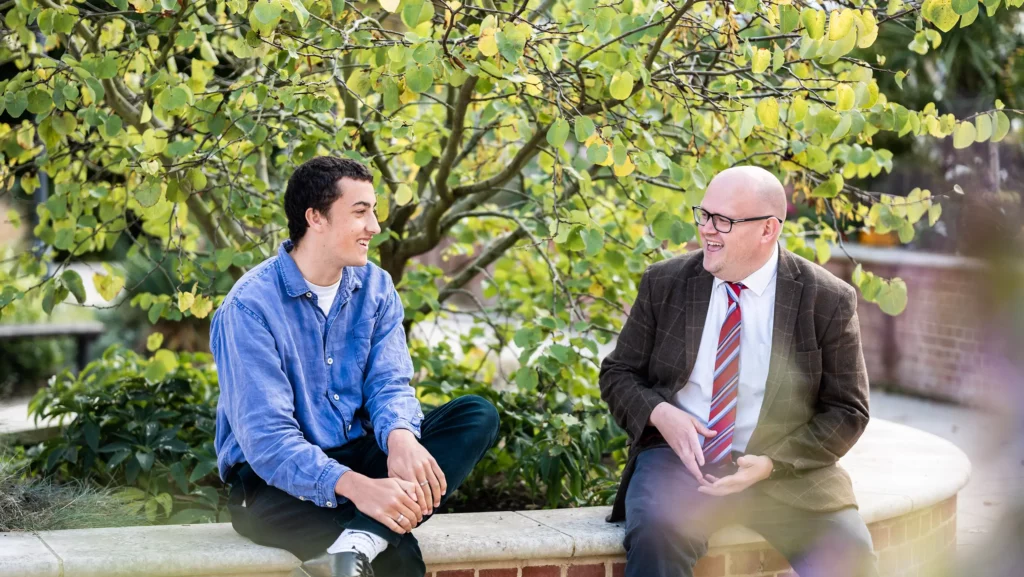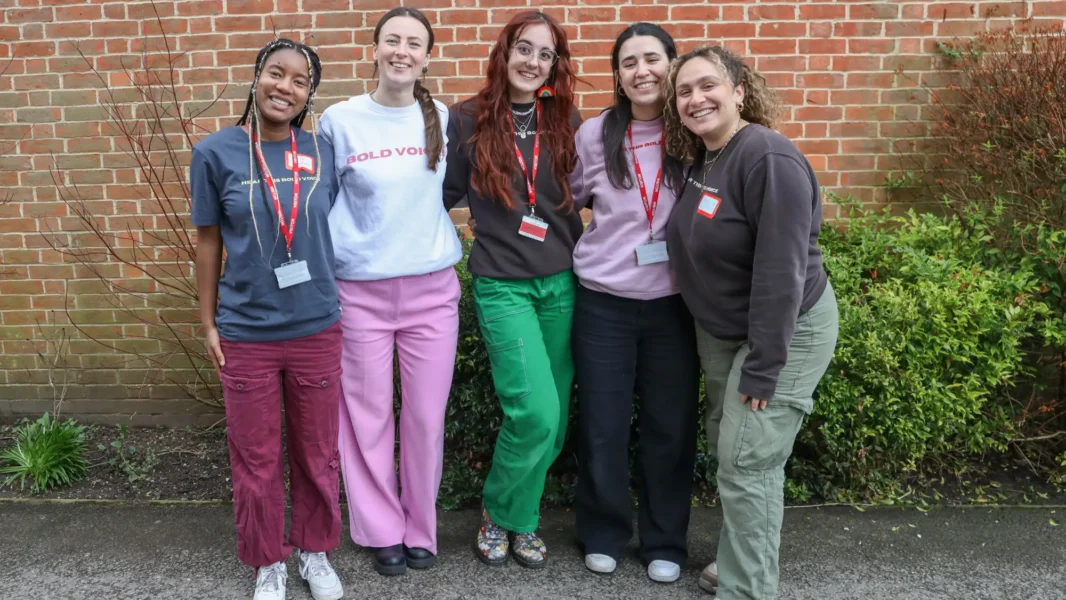Within the Bryanston academic system lies the falsely austere sounding but deeply integral Correction Period (or CP).
From the perspective of most schools, the concept of teachers having a 35-minute session every week with each A Level or IB pupil they teach is something that might happen in an ideal world but would be wholly impractical in reality.
The Correction Period pre-supposes an academic timetable flexible enough to facilitate it and that the interpersonal engagement it requires is both accepted and embraced by teacher and pupils alike. It is madness. It is inefficient. But it is probably the most important and useful feature of Sixth Form study at Bryanston.
The classroom is, of course, the usual environment where learning happens, and properly-managed it is marvellous. At their best, classrooms allow debate, research and questioning. But has the information dispensed and discussed been understood and absorbed?
Written assignments (homework) test a student’s mettle but in a world of Google, Wikipedia and ChatGPT it can never be entirely guaranteed that the understanding demonstrated comes from the mind of the pupil.
Sure, the pupils can complete timed pieces of work in class, but this erodes valuable teaching time. There is also the question of individuality – different abilities and learning styles that need to be catered for if each pupil is going to fulfil their potential. This is where the CP comes into its own.
Firstly, is my firm belief that teenagers need to take ownership of their own education rather than seeing it as something ‘done’ to them. The fact that young men and women at Bryanston are required to turn up once a week and sit down to justify both their work and their knowledge directly to their teachers is a huge responsibility.
Many a wayward pupil over the years has been made to sit next to his their less-than-impressed teacher as they try to justify the woefully inadequate work that they have managed to produce. This is profoundly embarrassing for them – but there is no escape!
Correction periods at their best treat pupils as adult stakeholders in their own education and encourage both self-criticism and self-reflection in a supported environment.
Secondly the correction period is a vital tool in allowing us to assess how much the pupils really know. Questioning an individual in class is useful but has its limits. All teachers know that the most profound and lasting form of knowledge is the ability to explain that knowledge to someone else. CPs allow this opportunity.
Conversation is also an excellent method of developing nuances in understanding. It allows pupils to break out from the strictures of what are now, unfortunately, very formulaic exam responses and explore the topic deeply. I would challenge any teacher at Bryanston to say that they have not at some point been surprised and informed by the opinion of one of their pupils expressed in a CP. We teachers have neither a monopoly on knowledge, nor of understanding.

Finally, the buzzword around education for the past couple of decades has been ‘differentiation’. This is based upon the understanding that pupils are all different and learn in different ways at different speeds.
In a traditional, entirely classroom-based education system catering to the needs of each pupil effectively is incredibly difficult. And the horror that weaker pupils feel at being given a ‘differentiated’ worksheet or the equal reticence of the stronger pupil to be given more challenging work openly is tangible.
Teenagers, by and large, do not like to have their differences highlighted in a classroom environment – for conformity is all and divergence discouraged. The CP is the ideal vehicle for the delivery of supportive differentiation. The pupils who are struggling to understand can be given reassurance and confidence by a teacher who can show sensitivity to their individual needs.
The pupil who is flying academically can be taken down different routes of conversation by a teacher, freed from the wide-cast net of the classroom. Our pupils are interesting adults-in-waiting who are curious participants in the journey of their lives rather than empty vessels waiting to be filled with what we regard as good for them. Individuality will probably be their most important asset in life. CPs help to highlight that.
In the end we are preparing our pupils for a world that none of us yet truly understand. We can guess, but not know, what roles today’s teenagers will fill in the future. The best that we can do for the next generation is equip them with the ability to communicate effectively, solve rather than simply learn about problems and have the self-knowledge to constantly test themselves through their own successes and failures.
If the one-to-one tutorial system is the ‘mortar’ that holds the Bryanston system together then Correction Periods provide the finishing touches.




